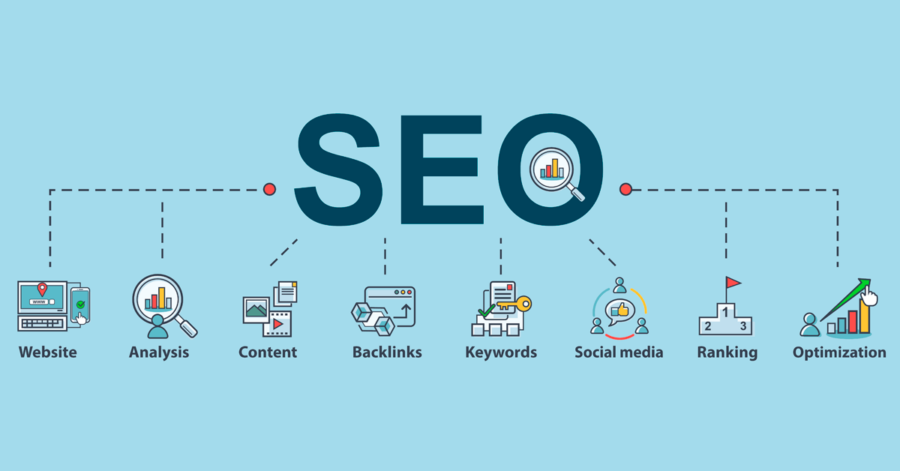Search Engine Optimization (SEO) is a long-term strategy for getting your website and web content found online. There are hundreds of factors that affect how websites and web pages rank on search engines’ results pages.
Search engine crawlers comb through all the information they can find on the internet to build what is called an index. Ultimately, it is the relevance of your page to the query that makes a difference in rankings.
On-Page Optimization
In the simplest terms, on-page optimization involves changes to a webpage that can affect its search engine ranking potential. It can include everything from keyword research to adding internal links. On-page SEO can be an overwhelming task, but many tools help streamline the process.
One such tool is SE Ranking, which uses AI to scan your website and identify areas that need improvement. It then provides recommendations on how to fix these issues.
When it comes to on-page SEO, the most important aspect is content. The key is to write a compelling title and description that incorporates your target keywords, while also giving search engines clues about the topic of the page. This includes making the page easy to read and including relevant images and videos. In addition, be sure to include your target keywords in the URL, meta-tags, and image alt text. In our experience, this helps pages rank more competitively.
Off-Page Optimization
Off-page SEO involves activities outside of your website that can impact search engine rankings. These can include gaining quality backlinks, optimizing your local business listings, and generating positive online reviews. While off-page optimization is less within your control than on-page SEO, it is just as important to implement and maintain.
Getting a reputable, relevant site or individual to link to your content is one of the most important off-page SEO strategies you can undertake. These links act as a vote for your content, indicating to search engines that it is valuable and authoritative.
Other off-page SEO tactics can include generating positive online reviews (which can boost your ranking on Google My Business and Yelp) and leveraging digital PR to increase brand mentions and overall authority. However, creating shareable and link-worthy content remains the top off-page SEO strategy, as it is one of the most reliable ways to improve your organic search rankings. This includes focusing on quality over quantity, as many SEO professionals are beginning to realize that buying links or self-submissions to directories can penalize your rankings.
Keyword Research
Keyword Research is the first step in any SEO process. It determines what search terms are important to your audience, and what kind of content you should create to rank for them.
The most effective way to do keyword research is by putting yourself in your customer’s shoes and thinking about the words and phrases they would use when searching for products or services like yours. Plugging those into a research tool will yield millions of potential keyword ideas.
From there, it’s a matter of selecting keywords that are relevant to your business and competitive enough to warrant spending time on them. It’s also a good idea to consider your budget and the amount of time you’re willing to spend on SEO campaigns. There are free and paid tools to help with this, including competition analysis and ranking difficulty metrics.
Link Building
We don’t know exactly what factors Google takes into account when ranking webpages, but we do know that high-quality links are one of the most important. Link building involves getting other websites to link to yours, which can help your pages rank higher in search results.
There are a lot of different ways to build links, but most of them fall into three categories:
Asking for links involves actively reaching out to other websites and asking them to link to yours. This can be a time-consuming process, but it’s also a great way to get targeted links from high-quality websites.
It’s important to choose the right pages for your link-building strategy. For example, a travel company that targets local keywords will have different needs than a technology company that targets national keywords. Choosing the right pages will ensure that you don’t end up with a spammy backlink profile or face a Google penalty.





